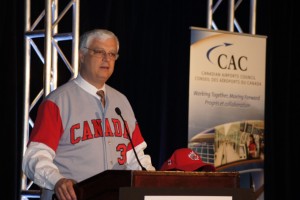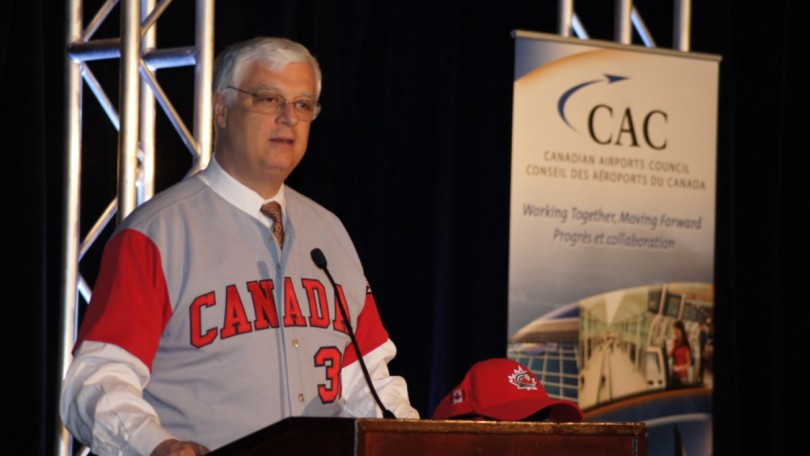The View From Washington: Why Canada May Already be a Loser in the 2014 American Elections
 I am writing this sitting at my dining room table in Alexandria, Virginia on Wednesday, June 11. All of the talk around town today is about the defeat, in yesterday’s Virginia Republican primary, of the U.S. House of Representatives Majority Leader Eric Cantor. It is fair to say that no one saw this coming; even yesterday’s Washington Post said that the election would be a non-event. This week’s Economist includes an article about difficult Republican primaries, and there is no mention of Cantor. Indeed, in the wake of the defeat of many establishment Republicans by Tea Partiers in the last two election cycles, establishment Republican success against the Tea Party so far this year had been seen as a sign things had changed for the better. No more.
I am writing this sitting at my dining room table in Alexandria, Virginia on Wednesday, June 11. All of the talk around town today is about the defeat, in yesterday’s Virginia Republican primary, of the U.S. House of Representatives Majority Leader Eric Cantor. It is fair to say that no one saw this coming; even yesterday’s Washington Post said that the election would be a non-event. This week’s Economist includes an article about difficult Republican primaries, and there is no mention of Cantor. Indeed, in the wake of the defeat of many establishment Republicans by Tea Partiers in the last two election cycles, establishment Republican success against the Tea Party so far this year had been seen as a sign things had changed for the better. No more.
What does this have to do with Canada? What does this have to do with the United States and Canada working more closely together on a range of projects including transportation, energy, security and so forth? Plenty, I would argue. And I would also state that Canadians should not be surprised, though I know they will be.
Six years ago I attended a Canadian Airports board meeting. I could see how involved my Canadian friends are in U.S. politics; many of the questions during the three days I was there involved whether I thought then-Senator Obama would win the election, to be held the following week. They knew as much about the “horse race” part of the election as most of my American friends (and this was confirmed in 2012 when I was in Ottawa right before that year’s presidential election, and I fielded some good questions from the wait staff at the little restaurant near the departure gate once they found I am an American).
But during that meeting in 2008, I listened to a presentation by a noted Canadian political analyst who reviewed some polling they had done on various issues. One part of the polling had to do with American attitudes toward Canada. It was a rosy picture. Being one of two Americans in the room (my wife was the other) I listened with interest, but also with concern. I debated raising my hand. Finally, I did.
I spoke about a (then) new phenomenon in American politics. It did not yet have a name, the only political tea party anyone knew about happened in Boston in the 1770’s. But it was real; a sort of right wing populism that actually, in many cases, has something in common with the left wing sort (if you doubt this read the recent press about the relationship between Ralph Nadar, an American liberal icon, and Grover Norquist, the ideological enforcer of the right wing). I talked about this, and the fact that when you drive through middle America and are searching for something to listen to on the radio, you are very likely to find stations that broadcast right wing rants. And that, more often than might be comfortable, those rants were directed northward, against Canada.
The Canadian analyst at that 2008 meeting discounted my concerns. He said their polling showed great affection for Canada and Canadians from both Democrats and Republicans, liberals and conservatives. I told him these folks were not really Republicans, and the word “conservative” did not fully capture the depth and direction of their views. He called for the next question.
I tell this story not to prove I was right (I wish I was not) but to point to a growing nationalist/populist feeling in much of America; the America that votes in party primaries. There are a lot of reasons American politics have become more polarized; but the emergence of this feeling is exacerbating that division. Worse, because its adherents are most likely to vote in party primaries, we are left with growing numbers of office holders to whom what happens outside their own home area is not seen as relevant to them or their constituents.
Consider this. Dave Brat, the fellow who beat House Majority Leader Cantor, not only accused Cantor of being too close to President Obama (a picture of the two of them together adorned the Brat campaign website), he also accused Cantor and other Washington politicians of being too beholden to the Chamber of Commerce. I never in my life thought I would see a Republican run AGAINST the Chamber of Commerce, but Brat did and lots of them are. They say the Chamber wants immigration reform because big business wants cheap labor (even though most Chamber members are small businesses). They say Obama wants the authority to negotiate free trade agreements to sell out American interests to Europeans, Asians and, yes, Canadians.
(Conventional wisdom has it that the immigration issue is what really did Cantor in; that he was willing to do something to be sure that children of illegal immigrants might actually receive some education. The people who feel that way love Canadians; as long as Canadians either stay home or, if they come to America, spend their money and leave).
After President Obama was elected, I went to see then-Homeland Security Secretary Janet Napolitano in my then-capacity of President of Airports Council International – North America. One of the things I argued for was a more reasonable approach to security between the United States and Canada. She leaned across the table, stared me down, and said it wouldn’t happen and talked about concerns about people with ill-intent coming here through Canada. It was some of the same stuff I’d heard on those cross-country drives listening to the radio. To be fair, she softened her views and by the time she and I both left our jobs the atmosphere had become much better. And I know many establishment Republicans like to point to Keystone as evidence the administration does not care about our relationship with Canada; but consider the fact that Texas Senator Ted Cruz, who was born in Calgary, went to the totally unnecessary process of renouncing any claim to Canadian citizenship; and made sure the fact he had done so was in the press.
Some in the establishment Republican leadership are using Keystone as a way of showing that President Obama is so wedded to his environmentalist constituency that he would sacrifice the jobs a pipeline would create. There is enough truth in what they say to pass a test of reasonableness. But two things to remember: first, those establishment Republicans, by pushing the issue onto center stage when they did, made it harder for the President to give the go-ahead. And, more importantly, those same establishment Republicans are now increasingly under fire from this nationalist/populist element on the right and that fire has now fatally (in the political sense) burned one of their own.
Keystone may be useful as an anti-Obama issue to some; but many of those Republican primary voters are not likely to care about it very much. And certainly arguments that it harms America’s most important and friendly relationship will fall on deaf ears.
The anti-globalization left has been a fact of life since I got to Washington in 1979. The anti-globalization right now has an influence the left could only dream about.
At a family reunion last week, someone asked me why it is so hard to get “good ideas” enacted in Washington. Now this fellow is pretty opinionated, and by “good ideas” he meant ideas he agrees with. The answer I gave was this: to get ANYTHING done, you need 60 senators; 218 congressman (including at least ½ of the Republicans) and the President. That equation is awfully hard to achieve. Indeed, it took more than four years and 23 “temporary” extensions to pass a bill just to authorize the Federal Aviation Administration, the basic business of government. After yesterday’s election results in Virginia, that equation become exponentially harder. And on anything to do with increasing constructive American engagement in the world? Let’s just say there may be a better chance of my making the next Olympic team.
I doubt many Americans love Canada as much as do I. So these seem like tough times. Canada has become just another European country to many in the United States, and while many Americans like to visit Europe claiming that your opponent wants to turn America into a European country is guaranteed to get a reaction especially in right wing audiences. The idea of some kind of common transportation or security perimeter, or closer economic relations, will find a hard time gaining any traction outside the think tank community. We in America now live in a country where elected officials can get applause if they say they do not have a passport and don’t travel and when they ridicule an opponent who might speak another language (especially if it is French). The people who applaud such candidates are gaining an out-sized influence on the selection of our candidates. And that is not good.
Let me know your thoughts: goprincipato@gmail.com
The nameeventbrite is already in use. 
